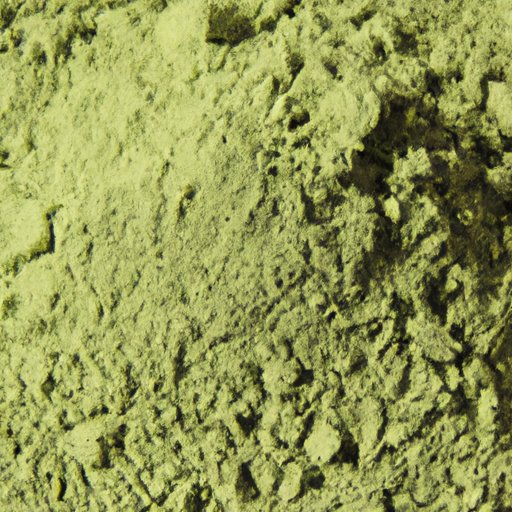
Introduction
Green powders have gained popularity in recent years as a quick and easy way to consume your daily dose of vitamins and minerals. But are they really worth the cost? In this article, we’ll explore the potential benefits and drawbacks of green powders, analyze the cost-effectiveness of incorporating them into your diet, and provide alternative recipes that mimic their benefits while being cost-effective and easy to make.
Benefits and Drawbacks
Green powders are marketed as a convenient way to get your daily dose of vitamins and minerals. They’re also known for their detoxifying and immune-boosting properties. However, while these benefits may sound enticing, some drawbacks come with consuming green powders.
First, the nutritional value of green powders may be inferior to that of whole fruits and vegetables. While they contain concentrated amounts of vitamins, minerals, and other plant-based nutrients, some of these nutrients may not be bioavailable or absorbed as efficiently as those in whole foods.
Second, the cost of green powders can be prohibitive. Quality green powders may easily cost $30 or more per jar, which can add up quickly if consumed daily. In comparison, buying whole fruits and vegetables is relatively cheaper, especially if you buy them in-season at a local farmers’ market or store.
Cost-Effectiveness
When it comes to the cost-effectiveness of green powders, buying whole fruits and vegetables is a much more economical option. While green powders may seem convenient, their cost can quickly add up, making it unsustainable for most people to consume them daily in the long run. If you’re on a budget, it’s better to focus on eating whole foods.
However, there are ways to save money when buying whole foods. Shopping seasonally and locally is a great way to save money and support local farmers. You can also buy in bulk, freeze extra produce, and make use of leftovers. These strategies will help you maintain a healthy diet while keeping costs low.
Scientific Research
Several scientific studies and clinical trials have looked into the benefits of green powders. However, many of these studies have limitations or potential shortcomings that need to be considered when analyzing their results.
For instance, some studies have only looked at the effects of individual nutrients found in green powders, rather than examining the overall effects of consuming green powders on human health. Moreover, some studies lack scientific rigor or use small sample sizes, which makes it hard to draw any significant conclusions from their results.
Therefore, while scientific research may provide some insights into the potential benefits of green powders, it’s essential to be critical and consider the limitations of each study’s methodology before drawing any conclusions.
Consumer Reviews
Consumer reviews can be an excellent source of information on the efficacy and overall value of green powders. Through these reviews, we can learn more about the side effects, benefits, and drawbacks of specific brands and formulations.
Many consumers report feeling an energy boost, improved digestion, and overall health benefits after incorporating green powders into their diets. Still, others have reported negative side effects, such as stomach upset, headaches, and nausea.
Therefore, it’s essential to consider both positive and negative consumer reviews when deciding whether or not to try green powders.
DIY Options
Making your green powders at home can be cost-effective and easy to do. There are many recipes available online that mimic the benefits of green powders while using whole fruits and vegetables.
For example, you can make a green smoothie by blending spinach, kale, banana, and almond milk. This recipe contains all the same vitamins and minerals found in a typical green powder supplement, but without the cost and potential drawbacks. Additionally, consuming whole foods instead of supplements ensures that we receive nutrients in their natural and most bioavailable form.
Bottom Line
Green powders may offer some benefits, but they are not necessary for maintaining a healthy diet. They’re also not cost-effective in the long run, so it’s better to focus on eating whole foods that are affordable and provide a wider range of nutrients.
However, if you’re interested in trying green powders, it’s essential to be critical and consider both scientific research and consumer reviews before making a purchase. Additionally, making your green powders at home is an excellent way to control their ingredients and ensure that you’re consuming whole, nutritious foods.
Conclusion
While green powders may seem like a convenient and healthy supplement, they’re not always worth the cost. Eating whole fruits and vegetables is a much more cost-effective and affordable way to maintain a healthy diet. However, if you’re still interested in trying green powders, there are many options available – just be sure to do your research and read reviews before making a purchase. Ultimately, the choice to consume green powders or stick to whole foods is up to you and your dietary needs and goals.





